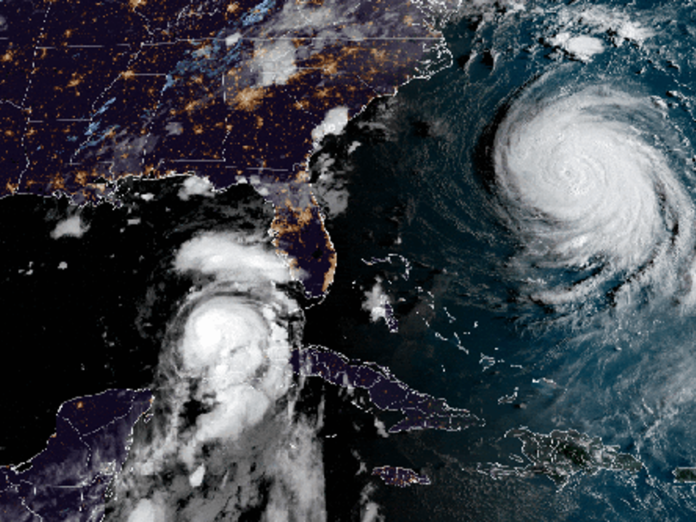
The National Oceanic and Atmospheric Administration (NOAA) released its 2024 Atlantic hurricane season outlook on Thursday and is predicting above-normal hurricane activity in the Atlantic basin this year.
NOAA has released its seasonal hurricane outlook for the Atlantic basin, and due to warm waters and a diminishing El Niño, the agency believes the year could be hyperactive.
The agency anticipates between 17-25 named storms will form, with 8-13 becoming hurricanes with winds of at least 74 mph. Out of those 8-13, 4 to 7 could become major with winds of at least 115 mph. It’s the greatest number of hurricanes predicted by NOAA in its annual May forecast, surpassing the forecast of 14-23 storms in 2010.

Overall, NOAA gives an 85% chance of an above-average season. It would be the eighth season in the last 10 to be above the 1991-2020 average.
Another measurement in NOAA’s hurricane forecasting toolkit is the Accumulated Cyclone Energy Index (ACE), which measures the combined intensity and duration of all named storms. This year’s outlook predicts between 150% to 245% of the median – classifying the prediction as a “hyperactive” season.
The outlook is fairly similar to Colorado State University’s, which also issued its busiest outlook ever, with the potential for upwards of 23 named storms.
“The Atlantic is still record warm in the tropical Atlantic, providing more fuel for storms,” Dr. Phil Klotzbach, a senior research scientist at CSU, told FOX Weather before its outlook release.
In all, NOAA joins 15 other forecasting agencies and computer models in predicting an above-average hurricane season — and in some cases well above-average season. Most are predicting around 20-25 named storms — which would nearly or exhaust the list of 21 names for the 2024 season and require using a new supplemental name list.

